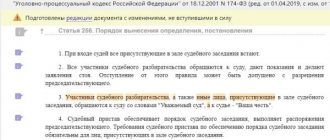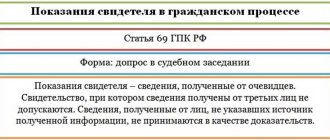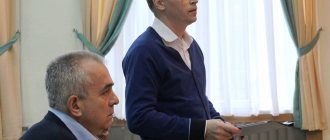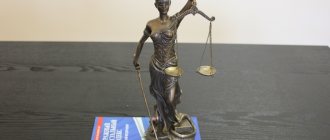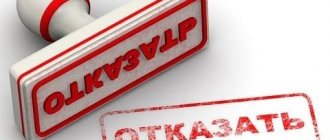Can an audio recording be evidence in a civil case?
In Art.
55 of the Code of Civil Procedure of the Russian Federation states that a phonogram can serve as independent evidence. It is provided on electronic media (CD, flash card). Reference! In Art. 77 of the Code of Civil Procedure of the Russian Federation stipulates that the person providing the audio must indicate when, where and under what conditions it was made. If a citizen cannot answer these questions, then the court may not accept the evidence. Officials have no questions if the opponent admits that his voice is heard. Otherwise, the court may require confirmation of when and where the conversation took place.
Judicial practice shows that an audio recording can help prove the following circumstances:
- extortion of a bribe;
- unlawful actions of officials;
- lending money;
- recognition of debt;
- threats and insults against a citizen.
Each case is considered individually.
In order for the court to accept a phonogram, its main characteristics must be:
- relevance;
- admissibility;
- credibility.
The court must be satisfied that the audio contains information that can confirm or refute any facts. Phonograms made without violating the law are considered acceptable. To confirm the accuracy, a phonoscopic examination can be done.
Secret voice recording can be used as evidence in court
In many situations, a dictaphone recording is almost the only opportunity to prove the fact of offensive statements, humiliating treatment or extortion of money. It is especially difficult to collect evidence if the events occur during private communication between a parent and teacher or in a lesson where the only witnesses are small children.
To date, there has been mixed jurisprudence regarding the admission of secret voice recordings as admissible evidence. By default, secretly recording conversations is an invasion of privacy. Unauthorized recording of private conversations was considered inadmissible evidence obtained in violation of the law.
In December 2021, a ruling was adopted by the Supreme Court of the Russian Federation, in which the Supreme Court allows the possibility of keeping and using as evidence in court a secret voice recording if its content affects the rights and interests of a participant in the conversation.
This does not mean that a recording of a private conversation that the other party does not know about can be distributed by any means. It is also unacceptable to record conversations that are not personal to the person recording. Such actions are criminally punishable. We are only talking about the possibility of using the recording in court.
For example, a secret recording of a story about the content of a teacher’s original methodology or a recording of a conversation with a parent who mentions details of family life would be a gross violation of rights and unacceptable evidence. It is unacceptable to secretly leave a voice recorder in a room where conversations can take place on any topic.
However, according to the Supreme Court of the Russian Federation, it is possible to secretly record one’s own conversation, which directly affects rights and interests. If a recording of a private conversation can serve as evidence of illegal actions, or if the conversation is conducted with a person performing official duties or in a public place, references to the protection of privacy can be challenged. Private life, as defined by the Constitutional Court, is “an area of human life that relates to an individual, concerns only him and is not subject to control by society and the state if it is not illegal in nature.”
The voice recording will be accepted as evidence in court if you follow the recommendations
The plaintiff must submit a written request to include the voice recording in the case. At the same time, it is important to indicate, as required by Article 77 of the Code of Civil Procedure of the Russian Federation, “when, by whom and under what conditions the recording was made.” In the application, it is advisable to describe in as much detail as possible:
- who made the audio recording,
- who owns the voices participating in the conversation,
- day, exact time of recording,
- location (address, name of organization, outdoor location),
- name of the device on which the recording was made (brand, model, number),
- the format in which the recording was made,
- what changes were made to the source file during the rewriting process (format conversion, renaming, etc.)
- whether the original file is preserved on the primary storage medium/recorder.
It is important to emphasize that the conversation was recorded for the purpose of self-defense of one’s rights, on the basis of Article 12 of the Civil Code of the Russian Federation. Directly in the petition it is worth indicating the circumstances that are significant to the case, which can be confirmed by a voice recording.
The recording can be attached on a CD, but it is advisable to attach a text transcript to the dictation recording. If the court has doubts, an additional examination may be required to determine the absence of traces of installation and identification of voices.
What the law says about the admissibility of voice recordings as evidence
“Circumstances of the case, which in accordance with the law must be confirmed by certain means of proof, cannot be confirmed by any other evidence” (Article 60 of the Code of Civil Procedure of the Russian Federation)
A person presenting audio and (or) video recordings on electronic or other media or applying for their claim must indicate when, by whom and under what conditions the recordings were made (Article 77 of the Code of Civil Procedure of the Russian Federation).
“Evidence obtained in violation of the requirements of this Code is unacceptable. Inadmissible evidence has no legal force and cannot be used as the basis for an accusation or used to prove any of the circumstances” (Article 75 of the Code of Criminal Procedure of the Russian Federation)
How the Supreme Court interpreted the use of a secret voice recording as evidence
To justify the inadmissibility of an audio recording of a telephone conversation, the court referred to paragraph 8 of Article 9 of Federal Law No. 149-FZ “On Information, Information Technologies and Information Protection,” according to which it is prohibited to require a citizen (individual) to provide information about his private life, including information constituting a personal or family secret, and to receive such information against the will of a citizen (individual), unless otherwise provided by federal laws.
According to the appellate instance, the recording of the conversation between the plaintiff and the defendant was made first without notification of the recording of the conversation, and therefore such information was obtained against the will of Sh., which is unacceptable due to the above norm of law.
It was not taken into account that the recording of the telephone conversation was made by one of the persons participating in this conversation and concerned circumstances related to the contractual relations between the parties. In this regard, the prohibition on recording such information does not apply to this case.
How to properly make an audio recording so that it becomes evidence?
In order for the court to accept audio to support arguments, the following conditions must be met:
- make a high-quality recording;
- transfer the file to removable media;
- make a text transcript;
- file a petition to include evidence in the case.
The application must state why it is important to use the audio recording. In the petition you need to write how and when the phonogram was made. It is recommended to list the supported circumstances.
Recording quality requirements
The audio should clearly distinguish voices and be free of noise and extraneous sounds. Therefore, it is recommended to choose professional voice recorders. Some devices have a function to protect against unauthorized access to information.
In order to record high-quality audio, you should pay attention to the characteristics of the equipment. It is recommended to choose voice recorders with the following parameters:
| Characteristic | Requirements |
| Recording format | Mono/stereo, PCM from 16 bits |
| Noise/signal ratio | From 70 dB |
| Band frequency | 100-5000 Hz |
| Management level | Automatic/manual |
| Sampling frequency | From 11025 kHz |
Transcribe the recording
A text transcript must be attached to the audio recording. You can do it yourself or turn to experts. The document does not require certification from officials.
How to attach to the materials of a civil case
Representation in court - civil proceedings
To include an audio recording in court proceedings, you must file a motion to attach the audio recording to the case. There are several options for filing an application, and if the judge takes into account the conversation on the voice recorder, this may resolve the dispute:
- before the start of the trial. In this case, the citizen must write a request, appear at the court office and give his application, which is marked with the date of acceptance of the application, the signature of the employee who accepted the application, as well as a stamp;
- during the trial. At the beginning of the hearing, the judge gives each party the opportunity to prove their innocence with other documents that were not previously provided;
- ordered letter. The petition is written by hand, and then sent to the court office, where the trial of the case will take place.
The correct document makes it possible to attach the record immediately. In this case, citizens can only use the original recording. For those citizens who want to find out whether it is possible to record a court hearing on a dictaphone, the legislation also has an answer. Some time ago, a law was passed that every participant in a case can keep a record, and the judge cannot prohibit this.
Recording device
When will the court not accept an audio recording as evidence?
The court may refuse to use an audio recording as evidence in a case if the following grounds exist:
- A voice recording is an invasion of privacy because it records private conversations.
- The citizen who presented the recording finds it difficult to explain its origin.
- The phonogram does not explain the circumstances of the case.
- It has not been confirmed that the voices on the recording belong to the participants in the process.
- The audio was obtained in violation of the law.
Attention! The legal acts do not have clear rules for the use of audio recordings as evidence in court. Therefore, each time the issue is resolved by the official on an individual basis.
About conducting a phonoscopic examination
On the appointment of a phonoscopic examination in a case of substitution of a judge’s sentence.
It so happened that a successful and respected judge had to give up her career. And this happened after she considered a high-profile case of the murder of a colleague by a police officer. The convict's lawyers refuted the sentence passed by the judge, saying that it had been replaced by her. Other errors immediately surfaced in the cases considered earlier. As a result, the judge was deprived of her powers, which she did not accept and sent an application to the Disciplinary Board.
And the following happened. In December 2014, in the Vesna cafe in the city of Nalchik, Zaur Kurshaev, who was then a police colonel, killed traffic police inspector Major Anzor Zagashtokov. The murder weapon was a service weapon. The cause of the murder was a simple quarrel. After quite some time, at the end of 2021, the judge of the city of Nalchik, Irina Tolparova, who had worked as a judge for 21 years, began to deal with this case.
There were many different obstacles and misunderstandings during the trial. Some witnesses repeatedly changed their testimony, some did not appear at the hearing at all due to travel outside the country. But in spite of everything, after some time Tolparova was sentenced, according to which the killer was imprisoned for a period of 7.5 years to be served in a maximum security colony.
The cost of conducting a handwriting examination for the court starts from 15,000 rubles
Duration from 3 days
However, the defendant's lawyers Tatyana Psomiadi and Khabas Evgazhukov appealed the decision. In the appeal court, Psomiadi made a statement about the substitution of the verdict, that is, according to her, the text of the verdict read out in court does not coincide with what was presented to them, and many words appeared in it that were not spoken during the announcement of the verdict. She presented a voice recording made using a mobile phone.
At the beginning of 2021, the Supreme Court of the Kabardino-Balkarian Republic recognized the fact of substitution, and the judge’s decision was canceled. The case was remanded for retrial. At the same time, the arbitration court headed by Albert Betsukov sent a special ruling to Tolparova. In addition, as a result of the appeal of the Chairman of the Supreme Court of the Republic Yuri Mairov to the KKS, she was removed from office. During the trial, she was reminded of the mistakes she had made when considering another case.
The judge was considering the case of pensioner Sitnikov, who at that time was seriously ill. (case No. 1-361/2015). He was found guilty of selling narcotic substances and sentenced to imprisonment for 7 years in a maximum security colony. By decision of the judge, the execution of the sentence was suspended due to the health of the convict. It was proposed to conduct an examination of the patient in order to determine the presence or absence of a disease for which he could be released from serving his sentence. But the appeal court concluded that the judge did not have the authority to make such a decision.
The regional qualification board confirmed that Tolparova actually made all these mistakes. The result was the deprivation of her powers.
The judge appealed to the Disciplinary Board of the Supreme Court of the Russian Federation.
In the Supreme Court, Tolparova denied the fact that the decision had been changed, stating that due to poor health at the time the verdict was pronounced, she may not have read the entire text, but in general, the essence of the verdict was voiced correctly. At the same time, she clarified that there was no audio recording of the court hearing, and it is quite possible that the existing recording could be the result of editing. Tolparova noted that she asked to send this audio recording for examination, but the Investigative Committee refused to do so.
The chairman of the court, Sergei Rudakov, asked Tolparova what questions she would like to clarify during the examination of the audio recording. She replied that first of all we need to check whether the installation is taking place.
Zamir Misrokov, representing the KKS of the republic, stated that the applicant admitted that it was her voice on the audio recording, however, she was not completely sure of this.
When asked by Rudakov whether the verdict was compared with the record, Misrokov answered in the affirmative, noting that many inconsistencies were found. At the same time, he noted that this was the first time in his career. The discrepancies lie in some individual words and sentences that are directly related to the matter.
Also, the presiding judge Misrokov was asked a question about the case of pensioner Sitnikov, to which he answered hesitantly that he was serving his sentence. And Tolparova explained that the convict is in the hospital. Misrokov did not give a clear answer about his medical examination.
During the proceedings, the presiding officer clarified whether Tolparova needed a phonoscopic examination, to which he received an affirmative answer. She was asked to identify the necessary questions to conduct an examination of the audio recording.
The former judge asked the following questions:
- time of receiving audio recording
- is the entry original?
- Has the recording been edited?
- The voice on the recording is identical to the applicant’s voice
Tolparova was warned that if it was confirmed that the voice on the audio recording belonged to her, the consequences could be very unpleasant. However, a decision was made to grant her request and to conduct an examination of the audio recording.
The experts will have to answer certain questions:
- identity of the voice sounding on the audio recording of Tolparova
- traces of installation
- the existence of gaps in the record and for what period of time.
The phonoscopic examination will be carried out by specialists from the Moscow Ministry of Internal Affairs. During that work, the court announced a break for 3 months.
5 / 5 ( 1 voice )
Questions from our readers
Do I need to warn my opponent that a recording is being made?
The law does not establish a requirement that the interlocutor must be warned that a recording is being made. The exception is personal conversations, since this can be regarded as an interference in private life (Article 24 of the Constitution of the Russian Federation).
Business, including telephone, conversations can be recorded without warning opponents about it. Such a recording will have to be accepted by the court as evidence in the case.
As a general rule, a citizen has the right to record his own conversation in person or by telephone regarding business matters.
How to prove the authenticity of a recording?
To confirm the authenticity of the phonogram, a phonoscopic examination is carried out. The research can be carried out either on the recommendation of the court or on the initiative of the citizen providing the recording, without the consent of the official. To do this, you can contact the forensic examination center under the Ministry of Justice or a non-governmental organization. In the latter case, the results will be obtained much faster. The expert's services are paid for by the person who provided the recording as evidence. Costs can be recovered from the defendant if the court takes the plaintiff’s side.
Conversation with a financial inspector
In conclusion, let us touch upon the question of whether a voice recorder can be used when communicating with tax officials (both the officials themselves and company representatives). I will say right away that in the cases discussed above, nowhere in the law is there a direct prohibition to openly audio record what is happening during control activities. However, the auditor does not always like this and they constantly try to claim that such a recording without their permission violates civil rights, i.e. appeal to Article 23 of the Constitution. In other words, they are trying to act in the same way as opponents who do not want to be recorded. But the relationship during the inspection is not private, but public. Therefore, in this case, Article 23 of the Constitution of the Russian Federation is not applicable.
For a lawyer
“As a lawyer, a voice recorder is absolutely necessary for me when recording the course of a court hearing,” says Elena Yulova, chairman of the Moscow Bar Association “Yulova and Partners.” She records all the testimony and the progress of the process. “If the secretary of the court session drew up an inaccurate protocol, I file comments on it,” notes Ms. Yulova. According to her, judges often refuse to certify comments on the protocol, citing the fact that everything is correctly reflected in it, while the lawyer’s comments can be essential for the correct resolution of the case. In this case, the dictaphone recording, after being transcribed by an expert, can be submitted to a higher court to confirm the truth of the comments. Elena Yulova says that during lengthy criminal trials for economic crimes, which last for several months and during which many witnesses are questioned, the court record is issued only after the end of the trial. In this case, an assistant lawyer or an engaged specialist transcribes the audio recording of the meetings. “This is done so that I, as a lawyer, can prepare for the next hearings, interrogations of other witnesses, the defendant based on the available testimony, which, of course, is forgotten in detail,” notes Ms. Yulova.
According to her, the recording is also used to protect the interests of the principals. She gives an example: the court announced the verdict without providing the defendant and the defense lawyer with a written copy of it. When the verdict was received, its contents differed significantly from what was announced. The presentation of a transcript of the audio recording of the announcement, compiled by experts, made it possible to overturn the verdict in a higher court. Another example from Ms. Yulova’s practice. During the trial, the judge, without hiding her sympathy for a particular party, conducted the trial in a biased and biased manner. By presenting a transcript of the audio recording of the court hearings to the higher court, the lawyer and his client achieved not only the removal of the judge from the consideration of the case, but also the deprivation of her status as a judge, since her behavior was egregious, which was confirmed by the audio recording of the trial. “The law provides for a lawyer or other participant in the process to make an audio recording of a trial without the consent of the court, in a notification procedure - I inform the court that the recorder is turned on. In arbitration courts, unlike courts of general jurisdiction, an audio recording is made by the court and at the end of the process it can be obtained, however, again, I use my copy to prepare for the next hearings,” continues Ms. Yulova.
Dmitry Zhdanukhin, General Director of the Collection Development Center, says: “In the practice of lawyers and collectors, a voice recorder is often used in conflict negotiations. For example, such a tactic is possible - if aggression begins on the part of opponents, then a previously hidden voice recorder (a separate device or built into the phone) is demonstrated and it is proposed to repeat threats or insults, so that this can be recorded and used for criminal or administrative prosecution.”
However, if you want to initially “play it open,” you can immediately warn the tax officer that you are recording the conversation and record this in the protocol. But such “publicity” has its pros and cons.” On the one hand, inspectors will no longer be able to declare their ignorance and will not have grounds to ask the judge not to accept the recording as evidence obtained in violation of the law. In addition, by making it clear from the outset that everything the inspectors say will be recorded, the inspectors are likely to behave with the utmost propriety and discretion. Accordingly, you will certainly be protected from all sorts of violations and even rudeness. But, on the other hand, we have the rules set out in paragraph 5 of Article 99 of the Tax Code of the Russian Federation, which states that materials obtained during inspections (both by auditors and by persons being inspected) along with the protocol remain with the inspectors. Accordingly, their complete safety cannot be guaranteed.
For the entrepreneur
Olga Ponomareva, Managing Partner of the Legal and Audit Group, Fr. As an example, she cites a situation where a debtor may admit a debt or the fact of a loan on a recording, but an official extorts a bribe. But employees can use a copy of the conversation as proof of receiving their salary in envelopes.
As for keeping a record of the audit by the tax authorities themselves, this issue had to be resolved several years ago by the federal arbitrators of the North Caucasus District. Having considered all the materials in the case, the judges concluded that the inspector has the right to keep a record. But in such a situation, he must make a special note in the protocol, and the entry must subsequently be attached to it and serve as a way to secure evidence (Resolution of the Federal Antimonopoly Service of the North Caucasus District dated June 19, 2006 No. F08-2677/2006-1112A).
The fact is that businessmen are subjects of private law. Tax legal relations arise between a public entity - tax authorities, on the one hand, and a private entity - entrepreneurs and firms - on the other. Accordingly, the provisions of Article 23 of the Constitution, which speaks of the inviolability of the private life of everyone, are not applicable to tax officials who perform their duties and are representatives of the state.
Anna Mishina
, for the magazine "Calculation"
Develop professionally
Invaluable experience in solving current problems, answers to complex questions, specially selected latest information in the professional press for accountants. Subscribe quickly >>
If you have a question, ask it here >>
Underwater rocks
The main problems that citizens may encounter:
- In order for a recording to be recognized in court, its original must be provided. Often the conversation is recorded on a phone or voice recorder and then copied to removable media. The court may reject the recording due to the fact that it was not made from the original sound source and, accordingly, is a copy and not the original. Therefore, it is recommended to save the audio on the device where it was recorded until the end of the proceedings.
- A low-quality phonogram was presented to the court. Often the recording contains extraneous noise, and voices are difficult to distinguish. Accordingly, the judge may not accept the audio as evidence. Therefore, it is recommended to use quality equipment when recording.
- At the beginning of the conversation, the citizen can announce the date, place, time and other information. This will simplify the identification of audio and will become indirect evidence of exactly when and under what conditions the recording was made.
Is hidden recording inadmissible evidence?
How to behave in court
Having examined Article 50 of the Russian Constitution, you can see that there is information there that the use of evidence obtained in violation of the law is strictly prohibited in any trial. Based on these excerpts from the law, many participants in the process are trying to exclude sound recordings from the number of documents proving guilt or innocence. Most often, this can be accomplished if the party chooses not to transcribe the recording, which is required by law.
Hidden recording
Voice recording should be made only on a cassette; information on digital media or disk is not taken into account. This also increases the list of reasons why a judge may refuse to take into account a conversation recorded on a medium. But the parties to the case can avoid such a problem if the audio recording is transcribed for the court, and evidence of the authenticity of the conversation is presented to the judge. There are cases when an audio recording does not prove the guilt of the defendant; this is possible not only by confirming the authenticity of the film.
Audio evidence for an administrative offense
I would like to note that audio recordings have become stronger as evidence in the administrative and legal sphere. Thus, last year a law was signed according to which sound recordings are now clearly a type of documentary evidence and have full significance for proceedings in an administrative offense case (Federal Law of April 26, 2016 No. 114-FZ). Please note that before the signing of this document, the issue of classifying “audio evidence” as documents and, accordingly, as evidence, each time had to be decided depending on the conviction of judges or officials. And all because in article 26.7. The Code of Administrative Offenses of the Russian Federation was not a firm “apply,” but a vague “may relate.”
Stay up to date with the latest changes in accounting and taxation! Subscribe to Our news in Yandex Zen!
Subscribe
The court refuses to accept the recording of the conversation
There are cases when a judge refuses a request to include a recording in the case. This can only be done on the basis of Article 69 of the Code of Civil Procedure of the Russian Federation, and the judge is obliged to substantiate his arguments on this issue. This article sets out the rules under which the court has the right not to accept a record in the case if it is unacceptable. This is possible if the audio was obtained illegally, facts of violation of the rights of any party were discovered, or the recorded conversation was tampered with.
Proceedings in court
When the judge justifies his refusal by the fact that it is not possible to identify the voices of the persons participating in the conversation, the parties have the right to file a petition to conduct an examination. This method allows you to eliminate film editing and additionally identify voices. If the conclusion states that the voice of the defendant or plaintiff is recorded on the tape, and that the recording is genuine, then the judge has no right to refuse to accept it according to the law.
Drawing conclusions from the information provided, one can understand that an audio recording can act as evidence under the law, but there are a number of requirements for sound recordings. Before presenting a recorded conversation to a judge, you should contact specialists to confirm the absence of editing, as well as to make a transcript. If one of the parties provides a recording of the conversation, and the other party does not deny this, then the evidence is added to the case.
Who can listen to telephone conversations
This right is given within the framework of operational investigative measures to internal affairs bodies, the FSB and customs authorities (Article 13 of the Federal Law of August 12, 1995 No. 144-FZ). Tax officials do not have wiretapping rights. In general, they don’t need it. They have access to your banking transactions.
The basis for organizing wiretapping may be received information about signs of an offense. It could be:
- telephone call to the police;
- information received from the Federal Tax Service;
- bank notification about suspicious transfers;
- testimony in another case.
Based on this information, the police officer draws up a report on the discovery of the offense, and ... “the case has been started.”
In the case of tax offenses classified under Articles 198-199 of the Criminal Code of the Russian Federation, the order for wiretapping is signed by an investigator of the Investigative Committee of the Russian Federation. The tax inspectorate transfers the materials to the Investigative Committee based on the results of the audit.
If you see that the tax audit report on the amount of additional assessments falls under Article 199 of the Criminal Code of the Russian Federation, from now on it is best to stop any business negotiations on this topic by phone. Because it is practically impossible to know at what exact moment they will listen to you.
How to “resolve” a tax evasion case?
Read more…
Examination of audio recordings for court
In order for the judge to take into account the recording on the media, it must undergo a special examination. Diagnostics is necessary in order to:
- establish the serviceability of the equipment on which the recording was made, and whether it is even possible to record the conversation in a high-quality manner;
- determining the situation during recording, as well as the sound environment (for example, you can determine where objects are located and how far the microphone is located from them);
- the number of persons who participate in the presented conversation is established, and the sequence of remarks is described (the recorded speech can be transcribed as a transcript);
- determining the age and gender of citizens participating in the conversation, as well as their mental state and dialect;
- the specialist confirms the authenticity of the recording; there should be no inserted parts in the phonogram (when a copy is provided, it is established what type it is);
- removal of external noise is carried out, which does not in any way affect the course of the conversation, and also does not provide any importance for the investigation (helps to increase the clarity of the text spoken by persons on the recording);
- a transcript is compiled in which the speech of each participant is recorded verbatim, this is done regardless of the quality of the audio.
Important! If a specialist discovers editing or falsification of a recording, then such evidence will not be accepted for consideration in the case.
Cases from practice
... After the accident the culprit of the accident claimed
that an obstacle prevented him from continuing to move; the driver sharply turned the steering wheel.
The injured party did not agree
...
….An employee of one company was fired from work due to absenteeism. carried out a phototechnical examination as confirmation
…
... Upon dismissal, an employee had a conflict with management, which refused to repay the debt. Worker
conducted
a phonoscopic examination
...
... Between two individuals a large sum of money was borrowed without a receipt. The second party denied the fact of accepting the funds and refused to return them...


